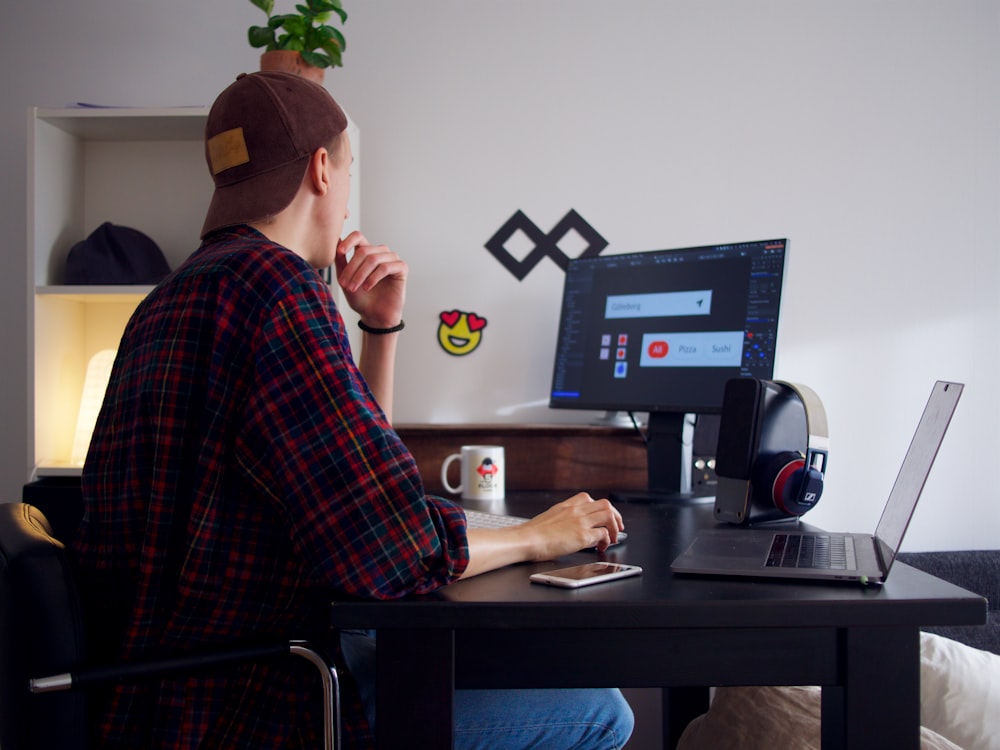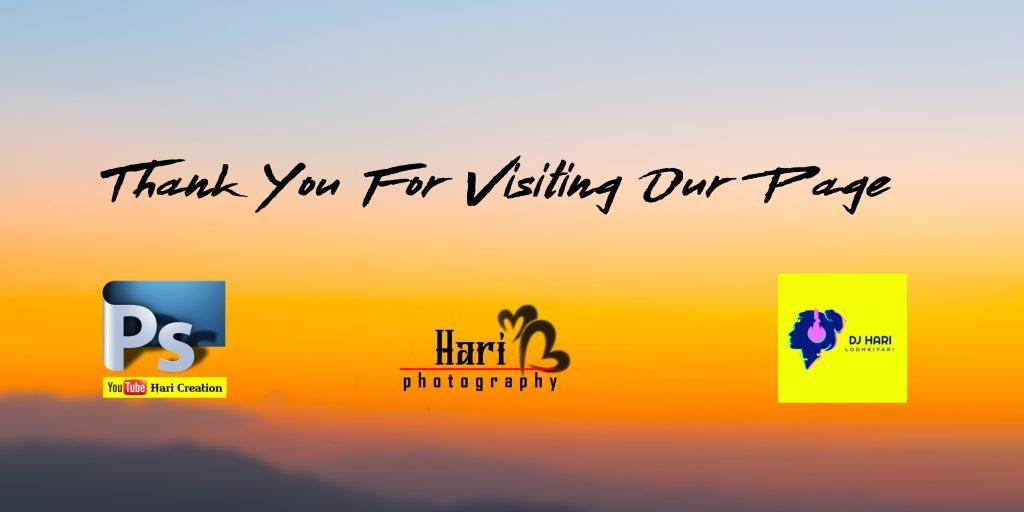10 Tips for Freelance Graphic Designers
- BY Mr Hari Kisku
- June 12, 2024
- 50 Comments
- 571 Views

Introduction
Welcome to the exciting and dynamic world of freelance graphic design! Whether you’re just starting out or looking to refine your practice, the journey of being a freelance graphic designer is filled with creativity, flexibility, and, yes, challenges. In this blog post, we’ll share ten essential tips to help you navigate this path successfully.
Table of Contents
Tip 1: Build a Strong Portfolio
Your portfolio is your calling card. It’s the first impression potential clients will have of your work, so make it count. Showcase your best projects and ensure each piece demonstrates your skills and versatility.
Showcasing Your Best Work
Select projects that highlight your strengths. If possible, include a variety of styles and mediums to show your adaptability. Remember, quality trumps quantity.
Digital vs. Physical Portfolio
While a physical portfolio can be impressive during in-person meetings, a digital portfolio is essential. Websites like Behance, Dribbble, and your own professional website are perfect platforms to display your work.

Tip 2: Establish Your Brand
Creating a personal brand helps you stand out in a crowded market. Your brand should reflect your style, values, and the type of work you want to attract.
Defining Your Style
Take time to understand your unique style. What makes your designs different? Your brand should communicate this distinctiveness.
Creating a Professional Website
A professional website is crucial. It not only hosts your portfolio but also includes your bio, contact information, and possibly a blog. A well-designed website enhances your credibility.
Tip 3: Network Effectively
Networking is vital in freelancing. It’s not just about who you know but who knows you and your work.
Online and Offline Networking
Join industry groups on social media, attend local and online events, and participate in design forums. These platforms are excellent for meeting potential clients and fellow designers.
Utilizing Social Media
Platforms like LinkedIn, Instagram, and Twitter are great for showcasing your work and connecting with potential clients. Share your projects, thoughts on design trends, and engage with the community.

Tip 4: Set Clear Goals and Deadlines
Planning and setting goals are crucial to keep your freelance business on track.
Importance of Planning
Set short-term and long-term goals for your career. These can include the number of clients, types of projects, or financial targets.
Tools for Time Management
Use tools like Trello, Asana, or even a simple Google Calendar to manage your deadlines and tasks. Staying organized helps you meet deadlines and avoid last-minute stress.
Tip 5: Keep Learning and Improving
The design industry is constantly evolving, and staying updated is essential.
Online Courses and Workshops
Platforms like Coursera, Udemy, and Skillshare offer courses to enhance your skills. Attend workshops and webinars to learn new techniques and software.
Staying Updated with Industry Trends
Follow design blogs, subscribe to industry magazines, and join professional organizations. This keeps you informed about the latest trends and technologies in graphic design.
Tip 6: Manage Your Finances
Handling your finances can be daunting, but it’s a critical part of freelancing.
Budgeting for Freelancers
Track your income and expenses carefully. Use accounting software like QuickBooks or FreshBooks to help manage your finances.
Invoicing and Getting Paid
Ensure your invoices are clear and professional. Follow up on unpaid invoices promptly. Setting clear payment terms at the start of a project can prevent misunderstandings later.

Tip 7: Find Your Niche
Specializing in a particular area of graphic design can set you apart from the competition.
Benefits of Specialization
Having a niche allows you to become an expert in that area, making you more attractive to clients looking for specific skills.
Identifying Your Ideal Clients
Think about the industries and types of clients you enjoy working with the most. Tailor your portfolio and marketing efforts to attract these clients.
Tip 8: Offer Excellent Customer Service
Good communication and a professional approach to client interactions can significantly impact your success.
Communication is Key
Keep your clients informed throughout the project. Regular updates and clear explanations can prevent misunderstandings and build trust.
Handling Revisions and Feedback
Be open to feedback and handle revisions professionally. Remember, your goal is to meet the client’s needs while maintaining the integrity of your work.
Tip 9: Stay Organized
Organization is critical in managing multiple projects and deadlines.
Managing Projects Efficiently
Use project management tools to keep track of your tasks and deadlines. Break down larger projects into smaller, manageable tasks.
Tools and Apps for Organization
Apps like Evernote, Notion, and Slack can help you stay organized and communicate effectively with clients and collaborators.
Tip 10: Promote Yourself
Marketing your services is crucial to attracting new clients and growing your business.
Effective Marketing Strategies
Use a mix of online and offline marketing strategies. This can include social media marketing, attending networking events, and sending out newsletters.
Leveraging Testimonials and Reviews
Ask satisfied clients for testimonials and reviews. Display these on your website and social media to build credibility and attract new clients.

Conclusion
Embracing the freelance journey as a graphic designer can be incredibly rewarding. By following these ten tips, you’ll be well on your way to building a successful and fulfilling career. Remember, it’s about continuous learning, staying organized, and effectively marketing yourself. Good luck!
FAQs
How can I start as a freelance graphic designer?
Start by building a strong portfolio, networking, and setting up a professional online presence. Consider taking on small projects to gain experience and build your reputation.
What are the best platforms to find freelance graphic design work?
Popular platforms include Upwork, Fiverr, and Freelancer. Social media and industry-specific job boards can also be valuable resources.
How do I handle difficult clients?
Maintain professionalism, set clear expectations, and communicate effectively. If issues persist, consider whether the project is worth continuing or if it’s best to part ways.
What should I include in my portfolio?
Include a variety of your best work, showcasing different styles and mediums. Ensure each piece highlights your skills and versatility.
How can I improve my graphic design skills?
Keep learning through online courses, workshops, and staying updated with industry trends. Practice regularly and seek feedback from peers and mentors.












Armando Frates
June 12, 2024Great items from you, man. I have take into account your stuff previous to and you are just too excellent. I really like what you’ve obtained here, really like what you’re saying and the way in which wherein you say it. You make it entertaining and you continue to care for to keep it wise. I can’t wait to learn far more from you. This is really a great website.
https://crypto-city.pro/
June 12, 2024Absolutely pent subject material, thank you for selective information. “The bravest thing you can do when you are not brave is to profess courage and act accordingly.” by Corra Harris.
hi88
June 12, 2024Hey! This post couldn’t be written any better! Reading through this post reminds me of my previous room mate! He always kept chatting about this. I will forward this post to him. Pretty sure he will have a good read. Thank you for sharing!
Authentic Scents exclusive perfumes
June 12, 2024I have been absent for a while, but now I remember why I used to love this web site. Thanks , I will try and check back more frequently. How frequently you update your web site?
hi88.com
June 12, 2024I precisely wanted to say thanks again. I’m not certain what I might have created without the creative ideas shown by you on my field. It truly was a real hard case for me, however , viewing the expert form you treated it forced me to cry over joy. I’m just happier for your assistance and have high hopes you comprehend what an amazing job that you’re putting in educating most people through the use of your web page. I am certain you’ve never come across all of us.
br patroa
June 12, 2024Great write-up, I’m normal visitor of one’s web site, maintain up the excellent operate, and It is going to be a regular visitor for a lengthy time.
7y bet
June 12, 2024I know this if off topic but I’m looking into starting my own blog and was wondering what all is required to get setup? I’m assuming having a blog like yours would cost a pretty penny? I’m not very internet savvy so I’m not 100 positive. Any tips or advice would be greatly appreciated. Appreciate it
naga empire
June 12, 2024I have recently started a website, the information you offer on this site has helped me greatly. Thanks for all of your time & work.
brl bet
June 12, 2024It?¦s truly a great and useful piece of information. I am happy that you shared this useful info with us. Please stay us informed like this. Thanks for sharing.
jun888
June 12, 2024Can I simply say what a aid to seek out somebody who truly is aware of what theyre speaking about on the internet. You undoubtedly know find out how to carry a difficulty to mild and make it important. Extra folks need to learn this and perceive this side of the story. I cant believe youre no more popular since you undoubtedly have the gift.
luxury floral perfume women
June 12, 2024When I initially commented I clicked the “Notify me when new comments are added” checkbox and now each time a comment is added I get three emails with the same comment. Is there any way you can remove people from that service? Thank you!
zzzz plataforma
June 12, 2024Keep functioning ,great job!
Honey Trick for Memory Loss
June 12, 2024Good write-up, I?¦m regular visitor of one?¦s web site, maintain up the nice operate, and It’s going to be a regular visitor for a lengthy time.
best online slot games
June 12, 2024The next time I learn a blog, I hope that it doesnt disappoint me as much as this one. I imply, I do know it was my option to learn, however I really thought youd have one thing interesting to say. All I hear is a bunch of whining about something that you possibly can fix in the event you werent too busy in search of attention.
the brain song reviews
June 12, 2024Hi! I’ve been following your blog for a long time now and finally got the courage to go ahead and give you a shout out from Austin Tx! Just wanted to say keep up the great job!
116bet2
June 12, 2024I like what you guys are up too. Such intelligent work and reporting! Carry on the excellent works guys I have incorporated you guys to my blogroll. I think it will improve the value of my website 🙂
7betgames
June 12, 2024Alright, time to explore 7betgames. Hoping they have a solid selection to keep me entertained. Variety is the spice of life! See for yourself at 7betgames
kkwinbet
June 12, 2024KKwinbet! Double the ‘K’, double the win maybe? Who knows! Definitely curious now… what’s their specialty? Good for sports? Casino games? kkwinbet
taib29bet
June 12, 2024Checking out Taib29bet. Looks like they’ve got a good variety of games. Hoping for some solid bonuses too! Ready for some good fun with real wins only at: taib29bet
236betcom
June 12, 2024What’s up, players! 236betcom… hmm, it’s okay. The games are alright, but the customer support could be better. Just being honest. Worth exploring if you’re curious 236betcom.
1xbet promo code
June 12, 2024Thankyou for this post, I am a big fan of this site would like to continue updated.
empire88
June 12, 2024Wow! This can be one particular of the most beneficial blogs We have ever arrive across on this subject. Actually Great. I’m also an expert in this topic therefore I can understand your effort.
79xlogin
June 12, 2024Trying to get into 79xlogin, eh? Hope you remembered your password! Seems straightforward enough. Here’s the portal: 79xlogin.
63jljl
June 12, 2024Yo, 63jljl just popped up on my radar. It’s got potential, definitely worth a look if you’re looking for something new. I’m still exploring it, but my initial impressions are good. 63jljl
fdertolmrtokev
June 12, 2024Thanks for helping out, superb information. “Our individual lives cannot, generally, be works of art unless the social order is also.” by Charles Horton Cooley.
Marcy Boyes
June 12, 2024I gotta favorite this site it seems very beneficial very helpful
situs togel online
June 12, 2024Today, I went to the beachfront with my children. I found a sea shell and gave it to my 4 year old daughter and said “You can hear the ocean if you put this to your ear.” She put the shell to her ear and screamed. There was a hermit crab inside and it pinched her ear. She never wants to go back! LoL I know this is completely off topic but I had to tell someone!
slot88
June 12, 2024You should take part in a contest for one of the best blogs on the web. I will recommend this site!
ace58loginapp
June 12, 2024Ace58loginapp, now that’s something I can get behind. Mobile gaming at its finest! So easy to just log in and start playing. Get the app yourself from ace58loginapp!
16betbr1
June 12, 2024So, I was checkin’ out 16betbr1 the other day, and it’s got that certain…something. Not the flashiest, but gets the job done. Good for a casual punt, maybe. Give it a looksee yourself at 16betbr1.
116bet
June 12, 2024I like this web site so much, saved to fav.
luxury perfume for date night
June 12, 2024Woh I like your content, saved to bookmarks! .
789bet
June 12, 2024Thanx for the effort, keep up the good work Great work, I am going to start a small Blog Engine course work using your site I hope you enjoy blogging with the popular BlogEngine.net.Thethoughts you express are really awesome. Hope you will right some more posts.
lotus bet
June 12, 2024Simply want to say your article is as astonishing. The clearness for your submit is simply spectacular and that i could suppose you’re knowledgeable on this subject. Fine along with your permission allow me to grasp your feed to stay updated with drawing close post. Thank you one million and please carry on the enjoyable work.
pucuk88.com
June 12, 2024I truly appreciate this post. I have been looking all over for this! Thank goodness I found it on Bing. You’ve made my day! Thx again
https://www.progettocondominio.org/slots/netent
June 12, 2024Its fantastic as your other blog posts : D, thankyou for putting up. “A single day is enough to make us a little larger.” by Paul Klee.
luxebet
June 12, 2024luxebet https://www.laluxebet.com
zaborna torilon
June 12, 2024There is noticeably a bundle to learn about this. I assume you made sure good factors in options also.
zhk svetskii les sochi 15
June 12, 2024купить 1 комнатную квартиру жк светский лес сочи купить
MichealOnerb
June 12, 2024проектор изображения магазин проекторов в Москве
up x 29
June 12, 2024Любишь азарт? ап х играть онлайн в популярные игры и режимы. Быстрый вход, удобная регистрация, стабильная работа платформы, понятный интерфейс и комфортные условия для игры в любое время на компьютере и мобильных устройствах.
up-x 50
June 12, 2024Любишь азарт? up x официальный играть онлайн легко и удобно. Быстрый доступ к аккаунту, понятная навигация, корректная работа на любых устройствах и комфортный формат для пользователей.
gurutoto
June 12, 2024Undeniably believe that which you said. Your favorite reason seemed to be on the internet the easiest thing to be aware of. I say to you, I certainly get irked while people think about worries that they just don’t know about. You managed to hit the nail upon the top as well as defined out the whole thing without having side effect , people could take a signal. Will probably be back to get more. Thanks
phgame
June 12, 2024phgame register|phgame slots|phgame casino|phgame login|phgame app Experience the ultimate online casino in the Philippines with phgame. Complete your phgame register today to enjoy premium phgame slots and live dealer games. Access your account via phgame login or download the phgame app for seamless mobile gaming on the go. Join phgame casino now for the best rewards and big wins! visit: phgame
derevyannye lyustry 10
June 12, 2024люстра потолочная купить деревянная люстра
muzhskie kostyumy spb 4
June 12, 2024костюм мужской цена мужские костюмы
togel 4d
June 12, 2024Excellent blog you have here but I was curious about if you knew of any discussion boards that cover the same topics discussed here? I’d really love to be a part of group where I can get responses from other experienced people that share the same interest. If you have any suggestions, please let me know. Bless you!
electric-top 34
June 12, 2024Электромонтажные работы https://electric-top.ru в Москве и области. Круглосуточный выезд электриков. Гарантия на работу. Аварийный электрик.
antikor-service-22
June 12, 2024Коррозия на авто? антикор автомобиля в спб цена мы используем передовые шведские материалы Mercasol и Noxudol для качественной защиты днища и скрытых полостей кузова. На все работы предоставляется гарантия сроком 8 лет, а цены остаются доступными благодаря прямым поставкам материалов от производителя.
ai-event-80
June 12, 2024Планируете мероприятие? тимбилдинг с нейросетями уникальные интерактивные форматы с нейросетями для бизнеса. Мы разрабатываем корпоративные мероприятия под ключ — будь то тимбилдинги, обучающие мастер?классы или иные активности с ИИ, — с учётом ваших целей. Работаем в Москве, Санкт?Петербурге и регионах. AI?Event специализируется на организации корпоративных мероприятий с применением технологий искусственного интеллекта.